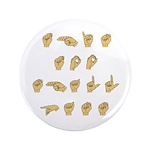It used to be that you would do a search on a relevant subject and get blog posts, forums posts, and maybe a couple of relevant companies offering the product or service. (And if you wanted more information on said company you could give them a call and actually talk to a real person about said service) You could even trust amazon and yelp reviews. Now searches have been completely taken over by Forbes top 10 lists, random affiliate link click through aggregators that copy and paste each others work, review factories that will kill your competitors and boost your product stars, ect… It seems like the internet has gotten soooo much harder to use, just because you have to wade through all the bullshit. It’s no wonder people switch to reddit and lemmy style sites, in a way it mirrors a little what kind of information you used to be able to garner from the internet in it’s early days. What do people do these days to find genuine information about products or services?


For products I’ll immediately start with Project Farm on YouTube and see if he’s covered the thing I’m interested in. If he hasn’t I’ll try /r/buyitforlife. I’ll look on multiple sites of retailers I’ve heard of for reviews of products from a manufacturer I’ve heard of (no “WEEJIANGBEST” on Amazon) and give conditional trust to ratings averaged from 3000 or more individual reviews. If I’m feeling wildly thorough I might visit Fakespot to vet those reviews. If the product is expensive, I might pay for a month of access to Consumer Reports. If it’s really expensive, I will pay for Consumer Reports.
For services, those are local to me, so I tend to rely on fuzzy word-of-mouth stuff. I might look in the subreddit for my city, but tend more toward simply knowing the reputation of what’s around me.
Edit: for local businesses, I also look them up on the Better Business Bureau.
We’re gonna put that to the test!
UK version of Consumer Reports is which.co.uk
If you’re buying appliances etc it’s well worth the money